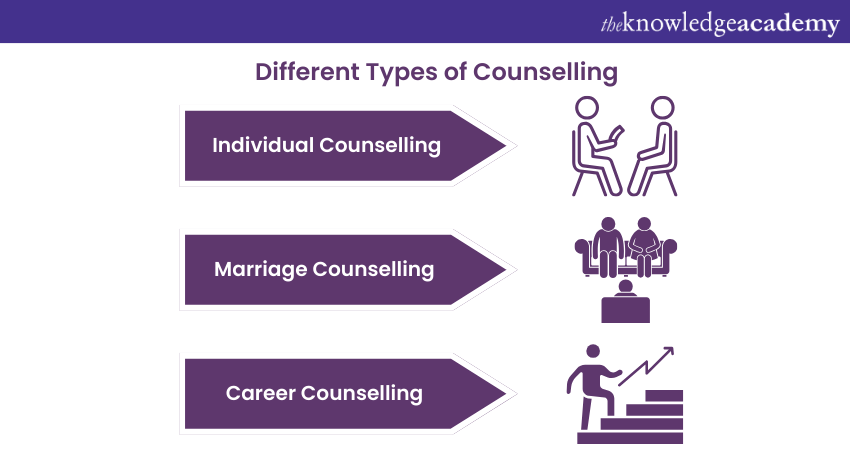relationship therapy sessions: Common Questions Answered
Wiki Article
Checking out the Benefits of Virtual Therapy in Modern Mental Wellness Care
The surge of virtual therapy marks a substantial shift in psychological health care. It offers boosted ease of access, allowing people from varied backgrounds to seek aid without geographical constraints. Versatility in scheduling suits differing way of livings, while the comfort of home can promote openness. However, the implications of these adjustments extend past plain ease. The progressing landscape of therapy increases important inquiries regarding its long-term results on client interaction and treatment outcomes.Improved Ease of access for All
Although conventional therapy typically presents obstacles such as geographical area and scheduling problems, virtual therapy significantly boosts availability for individuals looking for psychological health and wellness support. By removing the requirement for physical travel, virtual therapy enables customers from remote areas or those with wheelchair difficulties to get in touch with certified experts. This mode of therapy can reach underserved populaces that may lack regional mental health sources, consequently attending to differences in access to care. Furthermore, virtual platforms can cater to diverse demands, offering solutions in multiple languages and accommodating various social backgrounds. Clients can engage with a wider variety of experts, providing them with alternatives that line up with their particular demands and choices. This increased ease of access promotes an extra comprehensive setting, permitting individuals to seek assistance without the preconception often related to in-person check outs. Generally, virtual therapy stands for a significant development in making mental health care a lot more accessible to all.Adaptability in Scheduling Sessions

As virtual therapy proceeds to get traction, its inherent adaptability in organizing sessions proves to be a substantial advantage for many individuals. Unlike conventional in-person therapy, virtual therapy allows clients to choose session times that ideal fit their individual and specialist commitments. This flexibility fits those with demanding work schedules, family members obligations, or various other dedications that can make going to physical visits testing.
Customers can conveniently reschedule or readjust their sessions as required, lowering the stress and anxiety associated with stiff consultation systems. The availability of different time slots throughout the week, consisting of evenings and weekends, additionally enhances accessibility. This adaptability not only urges consistency in participation yet also cultivates a greater dedication to the therapeutic process. Eventually, the adaptability in scheduling sessions stands for a transformative change in mental health and wellness treatment, encouraging individuals to prioritize their wellness without compromising other elements of their lives.
Convenience of a Familiar Setting
The comfort of a familiar environment substantially boosts the performance of virtual therapy for numerous clients. Participating in therapy from the safety of their own homes allows people to feel even more comfortable, reducing stress and anxiety that may go along with standard in-person sessions. This familiarity can help with open interaction, enabling customers to reveal their thoughts and feelings much more freely.Additionally, the visibility of individual products and the capacity to regulate their environments can add to a feeling of safety and security and leisure. Customers frequently report that remaining in a comfortable area permits them to concentrate more on the restorative process instead than the establishing itself.
In addition, the casual nature of virtual sessions can help dissolve obstacles that might exist in a standard workplace atmosphere, cultivating a deeper link with specialists. Generally, the comfort of familiar environments plays an essential duty in improving the therapeutic experience and effectiveness for many individuals looking for mental health assistance.
Larger Range of Healing Choices
A larger array of therapeutic choices appears via virtual therapy, allowing customers to access different techniques that might not be viable in typical setups. This versatility makes it possible for individuals to discover diverse strategies such as cognitive-behavioral therapy, mindfulness practices, art therapy, and also specialized interventions like trauma-informed treatment or dialectical behavior modification.Customers can select from a wider spectrum of specialists, consisting of those that specialize in specific niche areas or particular populations, enhancing the possibility of discovering a suitable suit. Virtual systems usually give accessibility to team therapy sessions, assistance neighborhoods, and workshops that may be geographically unavailable or else.
This range equips customers to participate in their recovery process according to their unique preferences and demands, potentially increasing inspiration and dedication to therapy. As an outcome, the landscape of mental health treatment ends up being much more comprehensive and versatile, satisfying a larger array of specific experiences and challenges.
Decreased Stigma Bordering Therapy
Accessing therapy via virtual platforms contributes to a considerable reduction in the preconception generally connected with mental healthcare. By providing a discreet and exclusive atmosphere, virtual therapy enables individuals to seek assistance without the concern of being evaluated or recognized. This anonymity attract those who may or else hesitate to pursue in-person therapy due to societal assumptions bordering mental health.Moreover, as the occurrence of virtual therapy increases, it stabilizes the conversation around psychological health, making it a much more appropriate part of everyday life. Individuals usually really feel extra comfortable reviewing their experiences on-line, promoting openness and minimizing sensations of seclusion. The access of these services additionally motivates a broader market to involve with mental health and wellness resources, cultivating a culture of support instead of shame. Inevitably, the increase of virtual therapy plays a vital function in improving attitudes towards seeking aid, adding to a much more approving culture concerning psychological health and wellness obstacles.
Cost-Effectiveness and Affordability

Decreased Session Costs
Many people looking for mental health and wellness support locate that virtual therapy significantly lowers session costs contrasted to traditional in-person choices. The removal of travel expenditures and pause work often adds to total cost savings. Furthermore, numerous virtual therapists offer competitive rates due to lower overhanging prices connected with keeping a physical workplace. This change in expense enables clients to access top quality mental wellness services without the financial stress that might feature conventional therapy. For numerous, this cost allows much more frequent sessions, which can boost therapy outcomes. As a result, virtual therapy not only equalizes accessibility to psychological healthcare yet likewise offers a lasting economic design that straightens with customers' budget plans, making mental wellness support a lot more possible for a broader target market.Increased Gain Access To Choices
While standard therapy usually offers logistical barriers, virtual therapy greatly increases access alternatives for individuals looking for mental health treatment. By removing the need for travel and enabling versatile organizing, virtual therapy fits diverse way of livings and dedications. This availability is particularly useful for those in remote areas or with movement difficulties. Furthermore, the cost-effectiveness of virtual therapy decreases financial pressure, making psychological health solutions more reachable. Several platforms offer read more tiered rates or gliding range fees, promoting affordability. Insurance policy companies progressively identify virtual therapy, further improving its economic availability. In general, virtual therapy not just expands the scope of who can receive treatment however additionally addresses economic obstacles, making mental health support a lot more comprehensive and attainable for all.Boosted Connection of Care
Boosted connection of care becomes a considerable benefit of virtual therapy in modern-day psychological health and wellness treatment. This approach enables patients to preserve regular communication with their specialists, no matter geographical obstacles or organizing conflicts. low cost therapy. The flexibility of virtual sessions promotes normal check-ins, which are vital for monitoring development and adjusting therapy prepares as neededAdditionally, electronic health and wellness documents and telehealth systems help with smooth info sharing amongst care companies. This interconnectedness ensures that all professionals involved in a client's care are updated on treatment advancements, bring about even more collaborated and effective treatments.
Patients commonly experience reduced anxiety and boosted interaction because of the comfort of accessing therapy from acquainted settings. Such ease of access improves adherence to treatment programs, eventually boosting end results - relationship therapy. To sum up, virtual therapy not only bridges voids in psychological health services but also fortifies the connection of care, a critical element of effective restorative relationships
Regularly Asked Questions
Just How Does Virtual Therapy Guarantee Confidentiality and Privacy for Customers?
The present concern addresses the procedures virtual therapy employs to secure customer privacy. Utilizing encrypted systems, secure logins, and conformity with guidelines like HIPAA, virtual therapy warranties that delicate info continues to be personal and hard to reach to unapproved individuals.Can I Change Therapists Conveniently in Virtual Therapy?
Changing specialists in virtual therapy is usually straightforward. Clients can communicate their desire for an adjustment via the platform, permitting for versatility in locating a better match without the logistical obstacles of in-person consultations.What Technology Do I Required for Virtual Therapy Procedure?
To join virtual therapy sessions, an individual typically requires a trustworthy internet link, a computer system or smartphone with a cam and microphone, and accessibility to a secure video conferencing platform specified by their specialist.
Are Virtual Therapy Sessions as Effective as In-Person Sessions?
Current research studies show that virtual therapy sessions can be similarly effective as in-person sessions, depending upon the individual's choices and situations. Variables such as comfort and ease of access may boost the general restorative experience for some clients.What Should I Do if I Experience Technical Issues Throughout a Session?
If technological issues emerge throughout a session, one ought to calmly connect the issue to the therapist, attempt to reconnect, or button to a back-up approach. Patience and flexibility are essential in taking care of these disruptions.Report this wiki page